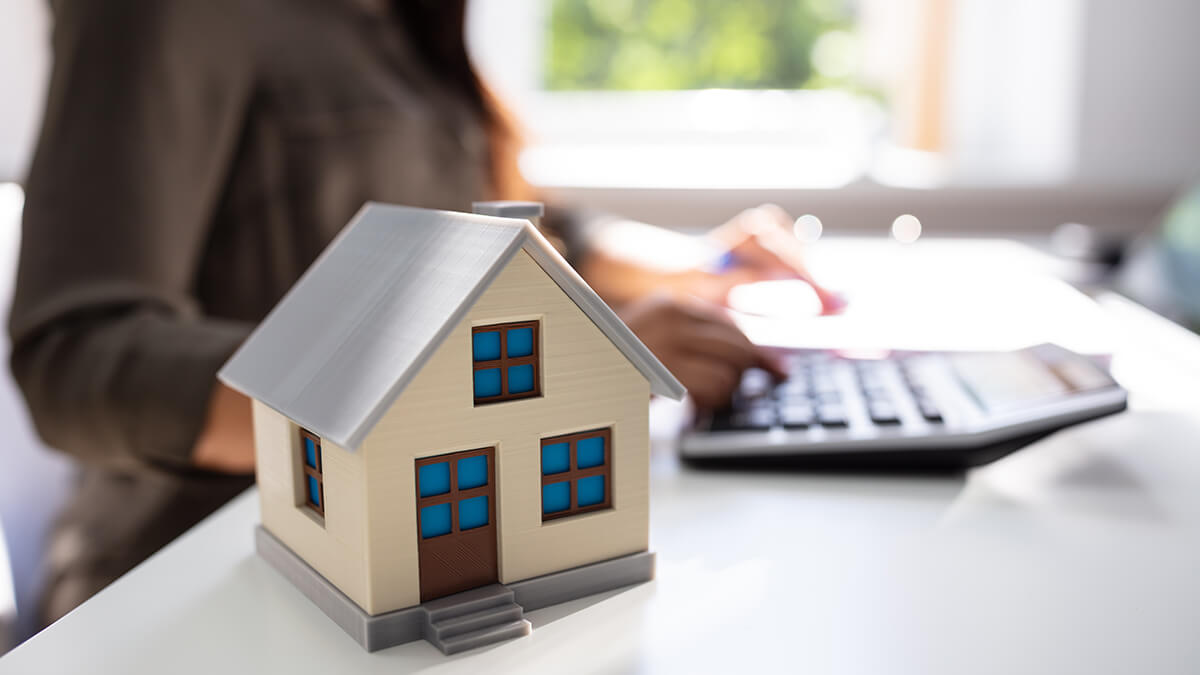Selling a house by owner in Florida can be a great way to save thousands on realtor commissions, but it’s not without challenges. Without an agent, you’ll be in charge of pricing, marketing, negotiations, and paperwork—all while trying to attract the right buyer. Get it right, and you could walk away with more money in your pocket. Get it wrong, and your home might sit on the market for months.
The good news? With the right plan, selling FSBO (For Sale By Owner) can be completely doable. This guide will walk you through each step of the process, from setting a competitive price to closing the deal. You’ll also learn about legal requirements, closing costs, and marketing strategies to help you sell faster. And if you ever decide you’d rather skip the hassle and sell quickly, an iBuyer could be a great option to get a fast, cash offer with minimal effort.
Florida FSBO
- What Does It Mean to Sell a House in Florida By Owner?
- Step-by-Step Guide: How to Sell a House by Owner in Florida
- Pros and Cons of Selling a House Without a Realtor in Florida
- FSBO Alternatives: What If You Don’t Want to Handle Everything?
- Reilly’s Two Cents
- Is Selling FSBO in Florida Right for You?
- FAQs About Selling a House By Owner in Florida
Instant Valuation, Confidential Deals with a Certified iBuyer.com Specialist.
Sell Smart, Sell Fast, Get Sold. No Obligations.
What Does It Mean to Sell a House in Florida By Owner?
Selling a house by owner—also known as FSBO (For Sale By Owner)—means you’re handling the entire sale without hiring a real estate agent. This can save you thousands in commission fees, but it also means you’ll be responsible for pricing, marketing, showings, negotiations, and paperwork.
In Florida, the real estate market moves fast, especially in cities like Miami, Tampa, and Orlando. FSBO homes can sell quickly if they’re priced right and marketed well. But without the right strategy, you could struggle to attract potential buyers or leave money on the table.
Here’s what you need to know before going FSBO:
- No listing agent commission – You keep the 3% you’d normally pay a realtor.
- Buyer’s agent commission still applies – Expect to offer 2-3% to attract agents with buyers.
- You’re in charge of everything – Pricing, marketing, negotiations, and paperwork.
- Getting exposure can be tricky – Without MLS access, you’ll need strong marketing.
- Paperwork matters – Mistakes in contracts or disclosure forms can delay or kill a sale.
FSBO isn’t for everyone, but if you’re organized, patient, and willing to put in the work, it can be a great way to maximize your profit.
Step-by-Step Guide: How to Sell a House by Owner in Florida
Selling FSBO isn’t as simple as sticking a “For Sale” sign in the yard. To get top dollar, you need a plan. Here’s a step-by-step guide to selling your home without a real estate agent in Florida.
Step 1 – Prepare Your Home for Sale
First impressions matter. A clean, well-maintained home will sell faster and for more money. Start by decluttering and deep cleaning to make your space feel open and inviting. Buyers want to picture themselves in the home, not see personal items everywhere.
Make minor repairs like fixing leaks, patching holes, and touching up paint. Small updates can make a big difference. Outside, boost curb appeal by mowing the lawn, trimming bushes, and adding fresh flowers. The goal is to create a great first impression before buyers even walk in.
Staging also helps. Arrange furniture to highlight space and function. Open curtains for natural light. Consider hiring a photographer—homes with high-quality photos get more interest online.
Step 2 – Set the Right Sale Price
Pricing too high will drive buyers away. Pricing too low means losing money. The key is finding a competitive price that attracts buyers but maximizes your profit.
Check the value of similar homes sold in your area. Online tools like Zillow and Redfin provide quick estimates, but they’re not always accurate. A Comparative Market Analysis (CMA) or professional appraisal can help you price more accurately.
If homes are selling quickly in your area, you may be able to price a little higher. If the market is slow, pricing competitively is crucial to getting offers.
Step 3 – List & Market Your Home
Without a real estate agent, you need to work harder to get your home in front of buyers. The best way to do this is by listing on the MLS (Multiple Listing Service). FSBO sellers can use a flat-fee MLS service to gain more exposure.
Beyond the MLS, post your listing on FSBO websites, social media, and real estate groups. Facebook Marketplace and Nextdoor are great for local buyers. A yard sign and flyers still work too!
Hosting an open house is another great way to attract multiple buyers at once. The more people who see your home, the faster you’ll sell.
Step 4 – Negotiate Offers & Handle Buyer Requests
When offers start coming in, it’s time to review and negotiate. The highest offer isn’t always the best. Look at contingencies, financing terms, and closing timelines before deciding.
Buyers may ask for closing cost assistance or repairs after their inspection. Be prepared to negotiate. If an offer is lower than expected, don’t reject it outright—counter with a reasonable price instead.
If multiple buyers are interested, you may be able to create a bidding war to get a higher price. Stay flexible but firm.
Step 5 – Handle Paperwork & Legal Requirements
Selling FSBO means handling all legal paperwork yourself. Florida law requires a Seller’s Disclosure Form, which informs buyers of any known issues with the property.
The Purchase Agreement outlines the sale terms, including price, contingencies, and closing details. If your home was built before 1978, you’ll also need a Lead-Based Paint Disclosure.
A title company will help with deed transfers and closing paperwork. Some home sellers also hire a real estate attorney to review contracts and prevent costly mistakes.
Step 6 – Close the Sale & Transfer Ownership
Closing day is when you sign final documents, transfer ownership, and get paid. Before closing, the buyer’s lender finalizes financing, and a title search ensures there are no issues with the home.
The buyer will do a final walkthrough to confirm the home is in the expected condition. At closing, you’ll sign the deed transfer, closing statement, and any required paperwork. Once funds are transferred, the sale is complete!
Pros and Cons of Selling a House Without a Realtor in Florida
Selling FSBO has clear advantages, but it also comes with challenges. Before deciding, weigh the pros and cons to see if it’s the right choice for you.
✅ Pros of Selling FSBO
1. No Listing Agent Commission – You save 3% of your home’s sale price, which could mean thousands of extra dollars in your pocket.
2. Full Control Over the Sale – You set the price, choose marketing strategies, and negotiate directly with buyers. No middleman means no agent pressuring you into decisions.
3. Flexibility in Choosing Buyers – You decide who you sell to and on what terms. Some sellers prefer working with buyers who don’t have financing contingencies.
4. Faster Decision-Making – No waiting on an agent to schedule showings, answer buyer questions, or handle paperwork. You can move as quickly as you want.
5. Potential for a Faster Sale – If you price your home competitively and market it well, you might sell just as fast—or even faster—than homes listed with agents.
❌ Cons of Selling FSBO
1. Marketing and Exposure Can Be Limited – Without MLS access or an agent’s network, it can be harder to attract potential buyers. You’ll need to put in extra effort to market your home.
2. Handling Negotiations Can Be Tricky – Buyers with real estate agents have professional negotiators working for them. If you’re not comfortable negotiating, you might end up with less favorable terms.
3. Pricing Mistakes Are Common – Many FSBO sellers overprice or underprice their homes. An incorrect price can scare buyers away or leave money on the table.
4. More Responsibility and Time-Consuming – Without an agent, you’ll be in charge of scheduling showings, managing paperwork, and ensuring the real estate transaction runs smoothly. It can be overwhelming, especially for first-time sellers.
5. Some Buyers Avoid FSBO Listings – Many buyers work with agents, and some real estate agents may steer their clients away from FSBO homes, knowing there’s no commission guaranteed on the seller’s side.
FSBO Alternatives: What If You Don’t Want to Handle Everything?
Selling FSBO isn’t for everyone. If you want to save money but still need some help, consider these options.
Sell to an iBuyer for a Fast, Cash Offer
An iBuyer makes an instant cash offer and can close in as little as a week. This is a great option if you want to avoid repairs, showings, and long negotiations.
Work With a Discount Real Estate Service
A discount real estate service offers flat-fee or reduced-commission MLS listings while still helping with pricing and paperwork.
Sell to a Cash Home Buyer
Cash buyers purchase homes “as-is” and can close in days, making this a good choice if your home needs repairs or you’re in a hurry.
Which Option Is Best for You?
- FSBO or discount agents work if you have time and want to maximize your price.
- iBuyers or cash buyers are better if you need a fast, guaranteed sale.
- Flat-fee MLS services help if you want wider exposure without paying full commission.
Reilly’s Two Cents
I’ve helped many homeowners sell FSBO, and while it can save you money, it’s not always as easy as it sounds. The biggest mistake sellers make is overpricing their home. It’s tempting to think your home is worth more, but buyers only care about market value. Research comparable sales and consider an appraisal if you’re unsure. A well-priced home attracts more buyers and sells faster.
Marketing is another challenge. A yard sign and a Zillow listing aren’t enough. To get serious buyers, list your home on the MLS with a flat-fee service, share on social media, and advertise in local real estate groups. The more people see your home, the better your chances of selling quickly.
Negotiating and paperwork can also be tricky. Buyers with agents expect you to know what you’re doing. If you’re unsure, a real estate attorney or title company can help. Missing details in contracts can delay or even cancel a sale.
FSBO is doable if you’re prepared to price right, market aggressively, and handle negotiations. But if it starts feeling overwhelming, a cash offer from iBuyer.com can save you time and hassle.
Is Selling FSBO in Florida Right for You?
Selling a house without a real estate agent in Florida can save you thousands in commission fees, but it requires planning, marketing, and negotiation skills. If you’re comfortable handling pricing, showings, paperwork, and negotiations, FSBO can be a great way to maximize your profit.
However, FSBO isn’t for everyone. If marketing your home, screening buyers, or managing legal documents feels overwhelming, you might consider alternative options. A discount real estate service can help with listing and paperwork, or you can sell directly to an iBuyer for a fast, hassle-free transaction.
If you’re ready to take on the FSBO process, follow the steps in this guide, price your home competitively, and market it aggressively. But if you want to sell quickly with minimal effort, get a cash offer from iBuyer.com today.
Compare Cash Offers from Top Home Buyers. Delivered by Your Local iBuyer Certified Specialist.
One Expert, Multiple Offers, No Obligation.
FAQs About Selling a House By Owner in Florida
No, Florida does not require an attorney to sell a home. However, hiring one can help with contracts, legal paperwork, and closing documents, reducing the risk of mistakes.
Yes, but it will be harder to attract buyers. The MLS (Multiple Listing Service) is where most homes are found. A flat-fee MLS service can help FSBO sellers get more exposure.
Expect to pay 1-3% of the sale price in closing costs, including title fees, taxes, and attorney fees. You may also cover buyer’s closing costs if negotiated in the deal.
You’ll need a Seller’s Disclosure Form, Purchase Agreement, Lead-Based Paint Disclosure (if applicable), and title documents. A title company or real estate attorney can help ensure everything is in order.
It depends on your priorities. iBuyers offer convenience and fast closings with no repairs or showings, but offers may be slightly below market value. If you need a quick, hassle-free sale, an iBuyer could be a great option.
Reilly Dzurick is a seasoned real estate agent at Get Land Florida, bringing over six years of industry experience to the vibrant Vero Beach market. She is known for her deep understanding of local real estate trends and her dedication to helping clients find their dream properties. Reilly’s journey in real estate is complemented by her academic background in Public Relations, Advertising, and Applied Communication from the University of North Florida.




